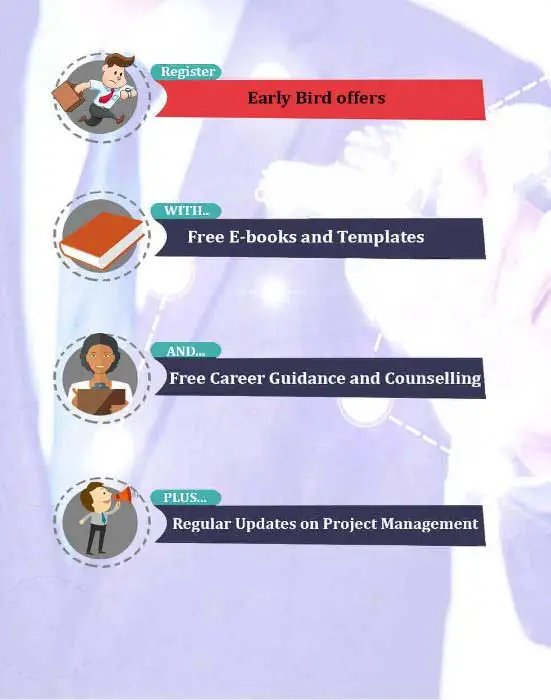Embarking on a journey toward becoming a certified Project Management Professional (PMP) is a significant milestone in one’s professional career. Attaining PMP certification signifies not just a recognition of one’s project management capabilities but also opens the door to a world of opportunities and challenges that await a project manager. In this blog post, we will delve into the life of a project manager after obtaining the PMP certification, exploring the benefits and experiences that shape their professional trajectory.
Overview – PMP Certification
The PMP certification, bestowed by the Project Management Institute (PMI), is a globally recognized credential that validates an individual’s proficiency in project management. The rigorous process of obtaining this certification involves meeting specific educational and experiential prerequisites, passing a comprehensive examination, and adhering to a code of ethics. The PMP certification is a testament to a project manager’s dedication, knowledge, and commitment to excellence.
PMP Benefits: Opening New Horizons
As per a survey conducted by PMI, after getting PMP (Project Management Professional) certified, you will earn 20% more than a non-certified project manager. The responsibility placed on your shoulders will increase, and you will be given initiatives of more importance. Your certification demonstrates your sound knowledge of Advanced project management strategies by validating your pmp skills and expertise. Hence, you will now be expected to implement innovative solutions for your firm and invigorate your team during tough Times.
After getting certified, your hard work also opens new opportunities. It provides a fresh career perspective and adds value to your resume by differentiating it from other project managers. Since you are certified, your way of working has evolved, and you can manage projects much more efficiently and effectively than before. By understanding advanced tools and techniques, you can take your project to the next level and mitigate associated risks. As a result, your approach to every project you undertake changes, and your goal becomes clearer.
More in detail:
The rigorous PMP training helps you build the ability to face challenges, deal with uncertainties and respond to changes better. Therefore, becoming a PMP signifies that you have mastered the language of project management and connect you to a global community. At PMI conferences, exhibitions, seminars, and local chapter events, you can network with the best project managers in the world. Also, you can communicate better with senior management to propose ideas and solutions. Because of your certification in project management, you are more confident about being assigned larger and riskier projects.
Remember, learning is a lifelong experience. It would help if you kept learning, reading & watching Project Management training-related stuff to gain PDUs every year to maintain your certification. As per PMI, you need to earn 60 PDUs every year to maintain your certification. Be sure to check out our rich free resources, including blog articles and webinars on project management. After working for some time, you can start preparing for the next steps in your project management journey.
The PMP Journey Continues
- Project Initiation and Planning – Armed with PMP knowledge, certified project managers meticulously initiate and plan projects. They define scope, establish objectives, create work breakdown structures, and develop comprehensive project plans that serve as roadmaps for success.
- Execution and Monitoring – During project execution, PMP-certified managers employ their skills to monitor progress, manage resources, and ensure adherence to timelines. They use key performance indicators (KPIs) to track project health and take corrective actions when necessary.
- Control and Quality Assurance – PMP-certified project managers implement rigorous quality control processes to uphold project standards. They conduct regular reviews, audits, and testing to identify and rectify deviations from the project plan.
- Risk Mitigation and Issue Resolution – Drawing from their risk management expertise, PMP-certified managers proactively identify potential issues and work to mitigate them before they escalate. When challenges arise, their problem-solving skills emerge as they navigate solutions.
- Project Closure and Reflection – PMP-certified project managers oversee the orderly closure of projects, ensuring that deliverables are met and objectives are achieved. Post-project evaluations and lessons-learned sessions enable them to extract valuable insights for future projects.
Valuable certifications
- PMI-RMP – The PMI-RMP certification training helps you master risk management processes, mitigate threats and capitalize on opportunities, an objective approach to addressing uncertainty in projects. These skills will help you manage complex, global projects. Being PMI-RMP® certified sets you apart from other professionals and brings credit to your Organization.
- PgMP – The Program Management Professional Certification (PgMP)® credential from the Project Management Institute (PMI)® supports those professionals handling many projects at a time, providing more benefits to the Organization. Program Management operates in highly ambiguous and uncertain environments; hence, program managers require specialized skills to succeed in their programs. Multi-layered projects require project managers to deal with complex activities that cross functions, cultures, and geographies.
- PfMP – A Portfolio manager’s role is essential in ensuring that everyone does exemplary work in the Organization. Formal portfolio management is the most effective way to implement strategic initiatives because it bridges strategy and implementation. Portfolio management mainly consists of activities to groping programs, projects, and operations to accomplish desired business objectives. As a portfolio manager, you must manage various aspects, such as time, cost, resources, etc., by applying portfolio management. Portfolio managers ensure that project failure is less often and waste of money is also less.
Conclusion
The journey of a project manager post-PMP certification is a fulfilling odyssey marked by growth, challenges, and achievements. The pmp benefits and skills acquired during this journey elevate a project manager’s career and contribute to their holistic development as a professional. Through their strategic thinking, risk management, and stakeholder engagement skills, PMP-certified individuals lead projects successfully. The PMP certification is not just a credential; it’s a testament to a project manager’s unwavering commitment to excellence in the ever-evolving landscape of project management.
So, If you are PMP certified, ProThoughts will be happy to help you excel in your project management journey. Don’t worry; if you are not PMP certified, we will provide you best project management training to become a master in that profession.
Upcoming Batches
| Name | Date & Time | Online |
|---|---|---|
| April Batch (4 Days – Weekend) – PMP Online | 27th, 28th Apr & 4th, 5th May 2024 8:45 AM to 6 PM, MUT | Know More |





